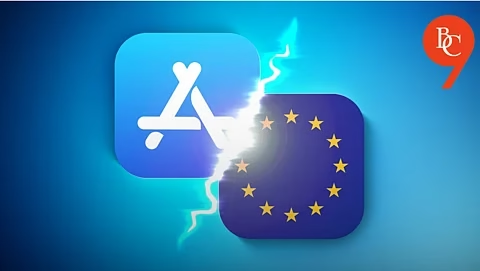Unpacking the Apple App Store EU Antitrust Violations
Estimated reading time: 7 minutes
Key Takeaways
- The European Union is increasingly scrutinizing Big Tech, with a particular focus on the Apple App Store EU antitrust violations.
- The European Commission has investigated Apple’s App Store practices, alleging they stifle competition and harm developers and consumers.
- Key points of contention include Apple’s mandatory in-app purchase system, prohibitions on steering users to alternative payment methods, and high commission rates (up to 30%).
- Apple has faced substantial fines, including over €1.8 billion for antitrust violations and an additional €500 million under the Digital Markets Act.
- Apple is implementing changes to comply with the Digital Markets Act (DMA), such as allowing alternative payment systems and communication about external offers, and introducing lower commission tiers.
- These regulatory actions are seen as a significant development for the tech industry in Europe and may set precedents for global tech regulation.
Table of contents
- Unpacking the Apple App Store EU Antitrust Violations
- Key Takeaways
- Understanding Antitrust in the Digital Age: The EU’s Perspective
- The European Commission’s Investigation and Key Findings
- The Ramifications: EU Fines Apple App Store Billions
- Navigating the Digital Markets Act: Apple App Store Digital Markets Act Compliance
- Impact on the Ecosystem: Developers and Consumers
- Apple’s Stance and the Road Ahead
- Final Thoughts on Digital Market Regulation
The European Union’s increasing focus on regulating Big Tech has placed major players under a magnifying glass. Among the most significant of these regulatory actions are the Apple App Store EU antitrust violations. This scrutiny is a significant development for the tech industry in Europe, signaling a potentially new era of platform accountability. The European Commission has been actively investigating Apple’s App Store practices, leading to accusations of anticompetitive behavior. Central to this is the investigation into whether Apple’s rules stifle competition and harm both developers and consumers.

The stakes are high, with potential consequences including substantial fines and a profound impact on Apple’s operations within the EU. As one report states, “The Apple App Store has come under intense scrutiny and penalties from the European Union, with regulators accusing Apple of antitrust violations related to its App Store practices and issuing significant fines in response.” Furthermore, “The EU has ramped up its examination of Big Tech, particularly focusing on the Apple App Store and allegations of antitrust violations. Central to this is the European Commission’s investigation into whether Apple’s rules stifle competition and harm both developers and consumers.” This intensified examination underscores the EU’s commitment to ensuring fair competition in the digital marketplace.
Understanding Antitrust in the Digital Age: The EU’s Perspective
Antitrust regulations in the digital age are designed to prevent dominant platforms from abusing their market power. In the context of digital marketplaces, this means ensuring that large platforms do not engage in practices that restrict competition, limit consumer choice, or stifle innovation. The European Union’s perspective is rooted in creating a level playing field for businesses and protecting the interests of its citizens.

Specifically, the Apple App Store competition rules in Europe that are under scrutiny are multifaceted. A primary concern is Apple’s long-standing requirement for developers to use its proprietary in-app purchase system. This system typically involves a commission of up to 30% on digital goods and services sold through apps. Compounding this, Apple has historically prohibited developers from steering users towards alternative payment methods outside of the App Store, which could offer lower prices or different terms.

The EU’s rationale for intervening is clear: to foster fair competition, safeguard consumer choice, and prevent the stifling of innovation. Regulators believe that dominant platforms, by controlling access and imposing restrictive terms, can gain an unfair advantage and hinder the growth of smaller businesses. As noted, “Antitrust violations in digital marketplaces occur when dominant platforms engage in practices that restrict competition or limit consumer choice. Specifically, Apple has been accused of forcing app developers to use its payment system, prohibiting steering users to alternative payment options, and charging high commissions of up to 30%, which the EU sees as a breach of competition rules designed to protect fairness in digital markets.” This perspective highlights the EU’s proactive approach to digital market regulation.
The European Commission’s Investigation and Key Findings
The European Commission Apple App Store investigation was a comprehensive process aimed at determining whether Apple’s practices violated EU competition law. The Commission meticulously examined Apple’s App Store policies, gathering evidence and insights from developers and industry stakeholders.

The key findings of this investigation led the Commission to conclude that Apple had indeed engaged in anti-competitive behavior. Specifically, the EU viewed Apple’s practices as stifling competition, particularly impacting music streaming apps. Developers were seen as being harmed by being prevented from informing users about cheaper alternatives available outside the App Store. The Commission argued that “Apple abused its dominant market position, particularly in the distribution of music streaming apps.” This abuse of dominance was further detailed by the statement that “The commission argued that Apple’s restrictive practices prevented rivals from informing consumers about cheaper alternatives, thereby impairing competition and harming innovation.”

As a direct result of these findings, Apple was mandated to implement several significant changes to its App Store policies. These included establishing improved communication channels for developers to interact with their users and offering greater flexibility in payment processing options. The EC required Apple to make these changes, aiming to rectify the anticompetitive issues identified. These required adjustments were aimed at fostering a more open and competitive environment within the App Store ecosystem, as indicated by reports that “The EC required Apple to make several changes to its App Store policies, including reduced restrictions on how developers communicate with users and more flexibility in payment processing options.”
The Ramifications: EU Fines Apple App Store Billions
The European Union’s investigation culminated in significant financial penalties for Apple, underscoring the seriousness with which the bloc treats antitrust violations. Apple was fined over €1.8 billion (approximately $1.9 billion) for abusing its dominant position on the market. This substantial fine reflects the EU’s stance on enforcing fair competition.

The implications of these fines for Apple are considerable. They could impact the company’s financial performance, potentially influencing its investment strategies and overall business model within the crucial European market. More broadly, these penalties serve as a precedent-setting action against a major global tech company, signaling a tougher regulatory approach by the EU towards Big Tech. As one analysis points out, “These fines pose a significant financial impact on Apple and set precedent for how digital platforms will be regulated in Europe and potentially worldwide.”

In addition to the primary antitrust fine, Apple also faced an additional penalty of €500 million ($580 million). This separate fine was specifically levied for breaches identified under the Digital Markets Act (DMA). This dual penalty highlights the EU’s multi-pronged approach to regulating digital platforms, addressing both traditional antitrust concerns and new digital market specific rules.
Navigating the Digital Markets Act: Apple App Store Digital Markets Act Compliance
The Digital Markets Act (DMA) is a cornerstone of the EU’s strategy to create a fairer and more contestable digital environment. It specifically targets large online platforms, known as “gatekeepers,” to ensure they operate in a way that does not unfairly disadvantage competitors or consumers. The DMA aims to foster greater openness and competition within the digital economy.

For Apple, compliance with the DMA has meant significant adjustments to its App Store operations, particularly concerning the Apple App Store digital markets act compliance. The specific requirements relevant to Apple include allowing EU developers greater flexibility. Apple has offered to overhaul its App Store to meet these obligations, a move that reflects the pressure from the DMA and ongoing antitrust investigations.
Key changes implemented or proposed by Apple include:
- Allowing EU developers broader rights to direct customers to alternative payment platforms.
- Easing restrictions on promotional language that developers can use to inform users about external payment options.
- Implementing new, lower commission structures. These changes potentially see commissions capped at 15%, with many developers paying closer to 10%, a significant reduction from the previous maximum of 30%.

These changes are designed to align with the DMA’s requirements and represent ongoing negotiations between Apple and the European Commission. While these adjustments aim to ensure compliance, Apple faces challenges in navigating the complexities of these new regulations. The company emphasizes that its policies are critical to maintaining user privacy and security. It argues that the mandated changes could potentially be detrimental to both users and developers, creating new risks or complexities. Ensuring full Apple App Store digital markets act compliance is an ongoing process that requires careful management and adaptation by Apple.
Impact on the Ecosystem: Developers and Consumers
The EU’s regulatory actions, stemming from the Apple App Store EU antitrust violations, have a direct and significant impact on the entire app ecosystem, affecting both developers and consumers.
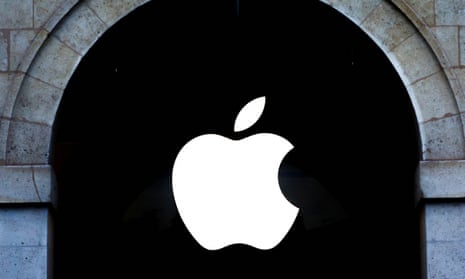
For app developers in Europe, these regulatory interventions are anticipated to bring several benefits. The primary advantage is the potential for a reduced financial burden, thanks to the introduction of lower commission rates. This means developers can retain a larger portion of their revenue, potentially reinvesting it into their products or offering more competitive pricing. Furthermore, increased autonomy is expected, as developers gain more freedom in how they communicate with users and manage payment options. This can lead to enhanced competition and a wider array of choices for users.
The research supports this, stating, “Previously, app developers faced high fees and strict limitations on informing users about off-platform payment options. The EU’s interventions are anticipated to lower commission costs and give developers more freedom, enhancing competition and choice.” This shift could empower developers and foster a more dynamic app market.
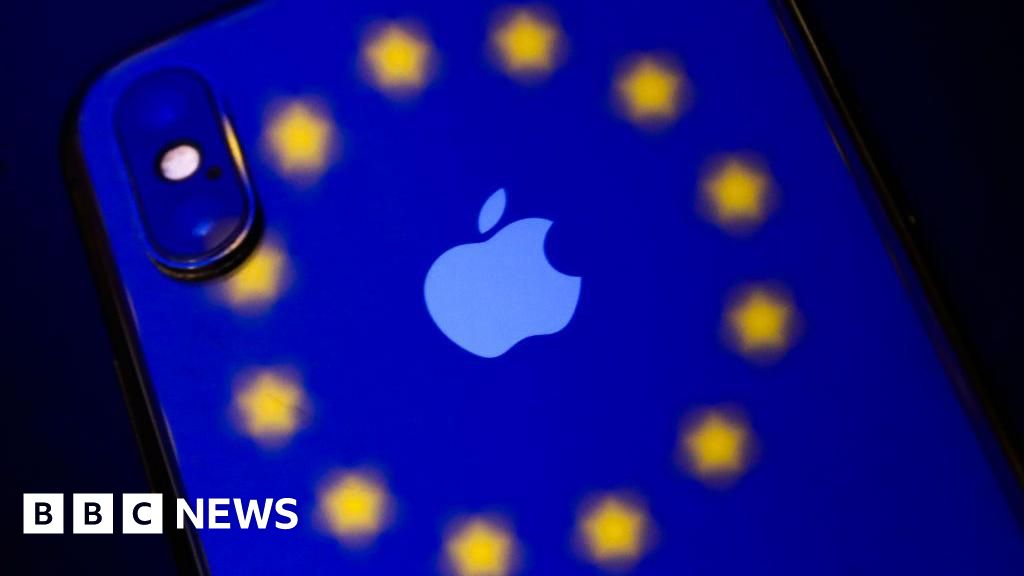
Consumers could also see positive effects from these changes. Greater competition within the App Store ecosystem may result in more app choices becoming available, potentially leading to improved services and innovative new applications. Additionally, consumers might benefit from potentially lower prices for in-app purchases or subscriptions, as developers pass on savings from reduced commission fees. As one finding suggests, “For consumers, this could offer more payment flexibility and potentially lower prices for digital goods and services.” This would represent a tangible benefit, making digital content and services more accessible.
Apple’s Stance and the Road Ahead
Apple has not been passive in response to the EU’s findings and penalties. The company has publicly stated its position, arguing that the Commission’s actions are “unlawful” and “go far beyond what the law requires.” This stance reflects Apple’s perspective that its current App Store policies are necessary for maintaining its ecosystem’s integrity, particularly concerning privacy and security.

In line with this position, Apple has lodged appeals against the imposed fines. The company is actively pursuing legal challenges through the EU’s judicial system, specifically in Luxembourg. This legal battle indicates Apple’s determination to contest the EU’s rulings and potentially overturn or mitigate the penalties. As noted, “Apple continues to dispute the findings and the necessity of the imposed fines, maintaining that the European Commission’s actions are ‘unlawful’ and ‘go far beyond what the law requires’.” Furthermore, “The company has appealed the fines and is pursuing legal action through the EU’s courts in Luxembourg.”

Apple consistently emphasizes that its strict policies are critical for safeguarding user privacy and security. The company argues that the mandated changes, particularly those related to allowing alternative payment systems and external communication, could negatively impact the user experience and compromise the security of the platform. Apple maintains that “its policies are critical to privacy and security, and argues that the mandated changes are detrimental to users and developers.” This positions Apple as defending its established practices on grounds of user protection.

The broader implications for the global tech industry are significant. This case serves as a potential benchmark for how future regulatory actions against other large technology platforms might unfold. The EU’s assertive stance and the detailed regulatory framework like the DMA are setting a precedent that other jurisdictions may follow, shaping the future of digital market regulation worldwide.
Final Thoughts on Digital Market Regulation
The Apple App Store EU antitrust violations and the subsequent regulatory response from the European Union represent a pivotal moment in the ongoing effort to regulate the digital economy. The EU’s actions are a clear signal of its intent to foster greater competition and consumer choice in digital marketplaces.

These developments are reshaping how major technology platforms operate, not just within the EU but potentially globally. The strict enforcement of rules like the Digital Markets Act establishes a new standard for platform accountability. As stated, “The EU’s regulatory actions against the Apple App Store mark a pivotal shift in oversight of digital platforms, intended to foster greater competition and consumer choice in digital marketplaces.” This marks a significant step in the evolution of digital market oversight.
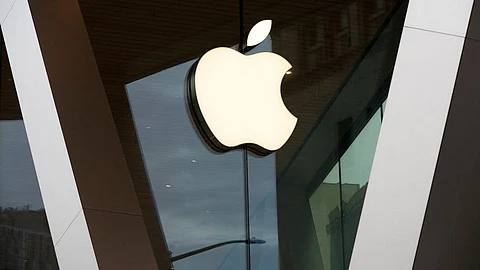
The continuous balancing act between encouraging innovation, ensuring fair competition, and protecting consumers remains at the forefront of digital market regulation. The outcome of Apple’s legal challenges and the ongoing implementation of the DMA will undoubtedly offer valuable insights into the future of tech regulation across the globe.
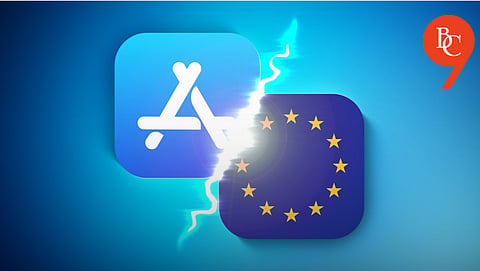






“`


